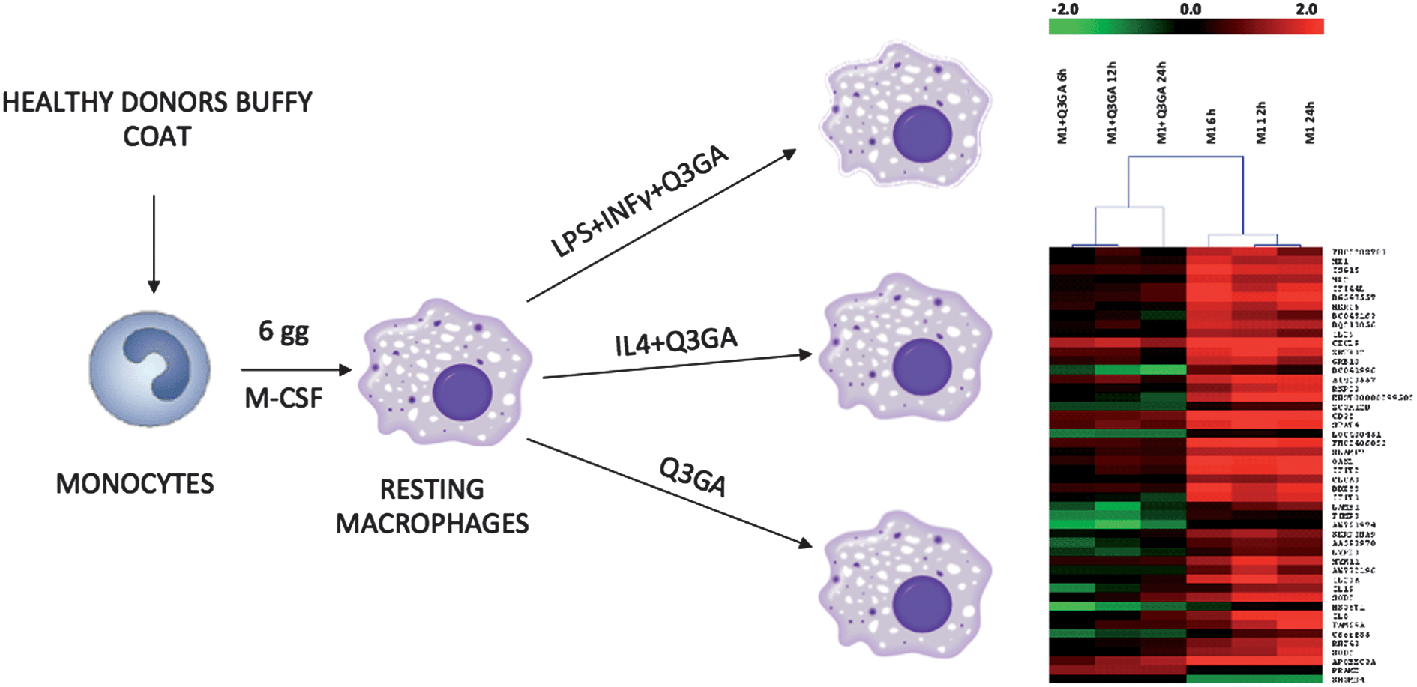In this study the effect of a major quercetin metabolite on gene expression of macrophages was investigated to elucidate the molecular mechanism behind the beneficial effects of flavonoids on cardiovascular disease. Macrophages (white blood cells within tissues), due to their recently discovered plasticity, are thought to play a crucial role in the development of atherosclerosis and quercetin has been implicated in inflammation modulation in humans through mechanisms involving macrophages.
In this work classical (M1) and alternative (M2a) macrophages were exposed to quercetin-3-O-glucuronide (Q3GA – the main human metabolite of the flavonoid quercetin) and gene expression was monitored after an incubation period. Q3GA was able to reduce the transcription of genes from M2a macrophages involved in inflammation showing that Q3GA positively influences inflammation-related gene expression in macrophages at low concentration. Also, as quercetin is a flavonoid, the observations reported in this work could explain the previously observed anti-atherogenic effects of diets rich in flavonoids.
To read the article for free until 4th September, please click the link below:
Quercetin-3-O-glucuronide affects the gene expression profile of M1 and M2a human macrophages exhibiting antiinflammatory effects, Eleonora Derlindati, Margherita Dall’Asta, Diego Ardigo, Furio Brighenti, Ivana Zavaroni, Alan Crozier and Daniele Del Rio, Food Funct., 2012, DOI: 10.1039/c2fo30127j
You may also be interested in this review which is also FREE to access:
Anti-inflammatory activity of natural dietary flavonoids, Min-Hsiung Pan, Ching-Shu Lai and Chi-Tang Ho, Food Funct., 2010,1, 15-31
You can keep up to date with the latest developments from Food & Function by signing up for free table of contents alerts and monthly e-newsletters.











